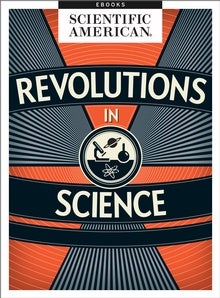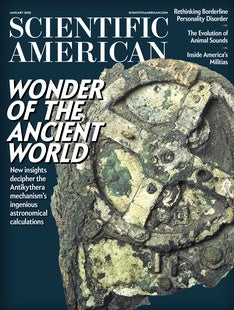 |
| January 11, 2022 |
Dear Reader,
Synthetic opioids and cannabinoids can cause disease and death, but that does not stop illicit developers from creating new designer drugs. To help government regulators control these novel substances, researchers have developed a new algorithm that identifies designer drugs before they are discovered—or even exist. |
| |
 |
| |
| |
| |
| |
| |
| |
| |
| Pharmaceuticals Preparing for the Next Plague SARS-CoV-2 adds impetus to the race for broad-spectrum countermeasures against future global infectious scourges | | By Laura DeFrancesco,Nature Biotechnology | | | |
| |
FROM THE STORE
 | | Revolutions in Science Normally science proceeds in incremental steps, but sometimes a discovery is so profound that it causes a paradigm shift. This eBook is a collection of articles about those kinds of advances, including revolutionary discoveries about the origin of life, theories of learning, formation of the solar system and more. |  | | |
| QUOTE OF THE DAY
 "But so far, web3 has been more like a buzzword that's designed more to confuse than to illuminate, and it's causing something like an identity crisis for the tech industry--with implications for the rest of us." David Ingram, NBC News | |
| |
FROM THE ARCHIVE
 | | | |
LATEST ISSUES
 |
| |
| Questions? Comments?  | |
| Download the Scientific American App |
| |
| |
























